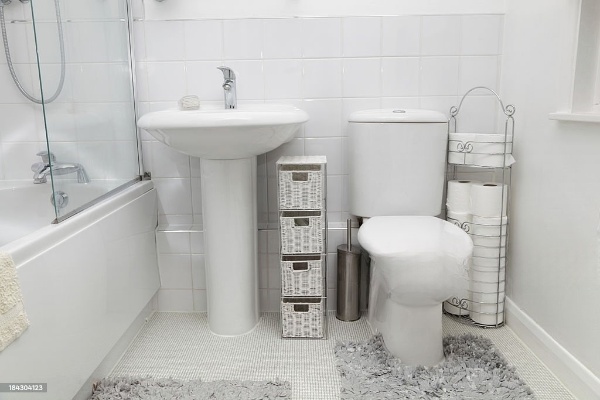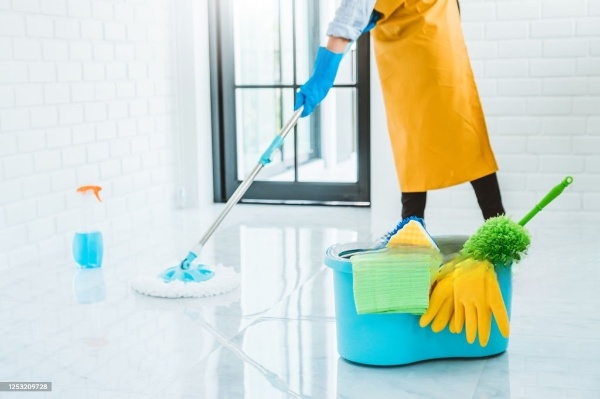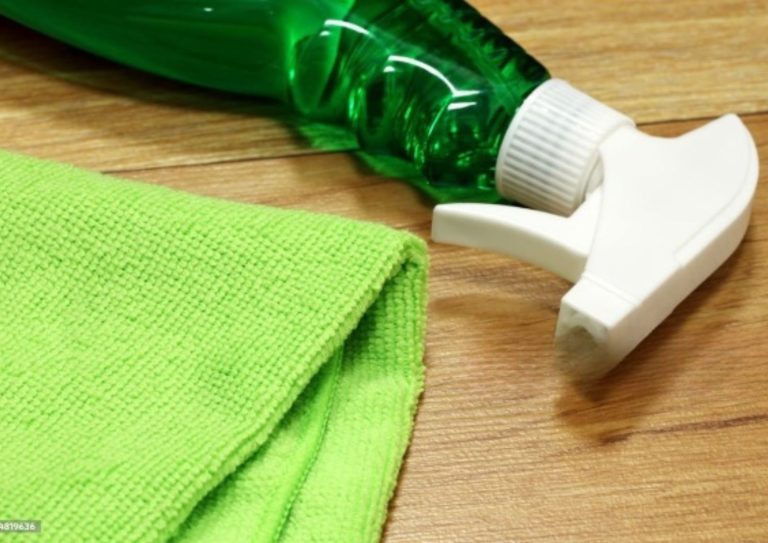Keeping your windows clean isn’t just about maintaining a sparkling appearance; it’s about preserving the longevity of your windows and ensuring a clear view of the outside world. Clean windows can brighten up your home, allowing more natural light to filter in, and they can enhance your property’s curb appeal. However, one of the most common questions homeowners have is: How often should you clean your windows? The answer isn’t one-size-fits-all, as it depends on various factors that we’ll explore in this article.
How Often Should You Clean Your Windows?

In general, residential windows should be cleaned at least twice a year. This biannual schedule is sufficient for most homes, especially in environments where weather conditions are moderate, and there’s not a significant amount of dust, pollution, or other external factors that could dirty the windows. However, this is just a starting point. The actual frequency may vary based on several factors unique to your home and its surroundings.
Factors That Influence Window Cleaning Frequency
Climate and Weather Conditions
Weather plays a significant role in how often you should clean your windows. In regions with heavy rainfall, snow, or high humidity, windows are more likely to collect dirt and grime quickly. Wind can also blow dust, pollen, and debris onto your windows, necessitating more frequent cleaning.
Location of Your Home
If your home is near a busy road, airport, or industrial area, your windows are more likely to accumulate dirt and pollution. Coastal homes may deal with salt spray and high humidity, which can lead to faster buildup on the windows. Homes surrounded by farmland may experience dust from plowing and harvesting, requiring more regular cleaning.
Type of Windows and Glass
The type of windows and glass you have can also influence cleaning frequency. For instance, tinted windows may show smudges and streaks more easily, requiring more frequent attention. Energy-efficient windows with special coatings might also need regular cleaning to maintain their performance.
Presence of Trees and Landscaping
Trees close to your home can shed leaves, sap, pollen, and even insect residue onto your windows. Bushes and plants near windows can also contribute to dirt and moisture buildup. If your landscaping contributes to dirty windows, you might need to clean them more often.
Air Quality and Pollution
If you live in an area with poor air quality or high pollution levels, your windows will likely need more frequent cleaning. Dust, smog, and other airborne particles can quickly settle on glass surfaces, making them look dirty and reducing their clarity.
Seasonal Window Cleaning Considerations
Spring Cleaning
Spring is an ideal time for window cleaning as it removes the grime accumulated over the winter months. The mild weather makes it easier to clean both the inside and outside of your windows. It’s also a great time to inspect your windows for any damage caused by winter weather.
Summer Maintenance
Summer brings higher temperatures and more sunlight, which can cause streaks if windows aren’t cleaned properly. Regular maintenance during the summer helps ensure that your windows are clear and free from dust, especially if you’re hosting gatherings or enjoying more outdoor activities.
Fall Preparation
Before winter sets in, fall is a good time to give your windows a thorough cleaning. This helps prepare them for the months ahead when they might not be cleaned as frequently due to cold weather. Cleaning in the fall also removes any debris or dirt that could cause damage during the winter.
Winter Challenges
Winter can be a challenging time for window cleaning, especially in colder climates where snow and ice are common. While it’s not always practical to clean windows during the winter, it’s important to keep an eye on them and clean off any heavy dirt or grime that could cause long-term damage.
Special Situations Requiring More Frequent Cleaning
After a Storm or Natural Disaster
Storms can leave behind dirt, debris, and water spots on your windows. It’s essential to clean your windows as soon as possible after a storm to prevent any damage from the accumulated debris.
Construction and Renovation Work
If you’re undergoing construction or renovation work, your windows may get dusty and dirty much faster. Construction dust and materials can cling to windows, making them look grimy. In such cases, you may need to clean your windows more frequently until the work is completed.
High Traffic Areas
Windows in high-traffic areas, such as near patios or doorways, may require more frequent cleaning. These windows tend to get smudged and dirty from fingerprints, pet paws, and general use.
The Benefits of Regular Window Cleaning
Improved Curb Appeal
Clean windows instantly boost your home’s curb appeal, making it look well-maintained and inviting. Whether you’re planning to sell your home or just want to enjoy its appearance, regular window cleaning is a must.
Better Natural Light
Dirty windows can block natural light from entering your home, making your space feel darker and less welcoming. Regular cleaning ensures that your windows allow in as much light as possible, brightening your home.
Prolonging the Life of Your Windows
Dirt, debris, and other contaminants can damage your windows over time. Regular cleaning helps to remove these harmful elements, extending the life of your windows and saving you money on repairs or replacements.
DIY vs. Professional Window Cleaning
When to Choose DIY Cleaning
DIY window cleaning can be a cost-effective option, especially for routine maintenance. If you have the right tools and products, you can achieve good results on your own. DIY is suitable for easily accessible windows and for those who enjoy taking on home improvement tasks.
When to Hire Professionals
Professional window cleaning is recommended for hard-to-reach windows, large homes, or when your windows require a deep clean. Professionals have the experience, tools, and techniques to get your windows spotless without the risk of injury or damage.
Tips for Efficient Window Cleaning

Best Tools and Products
Using the right tools and products is key to achieving clean, streak-free windows. Microfiber cloths, squeegees, and a good quality glass cleaner are essential. Avoid using harsh chemicals that can damage the glass or surrounding surfaces.
Techniques for Streak-Free Results
To avoid streaks, clean your windows on a cloudy day or when the windows are in the shade. Start by cleaning the frame and sill, then move to the glass. Use a squeegee in a vertical or horizontal motion, and wipe the blade after each pass to prevent streaks.
Safety Precautions
Safety should always be a priority when cleaning windows, especially if you’re working on upper floors or using ladders. Make sure your ladder is stable, and never overreach. If you’re unsure about your safety, consider hiring a professional.
How to Set a Window Cleaning Schedule
Assessing Your Needs
Consider the factors we’ve discussed, such as climate, location, and special situations, to determine how often your windows need to be cleaned. Your schedule should be flexible, adjusting to changes in weather or other conditions.
Creating a Seasonal Cleaning Plan
A seasonal cleaning plan can help you stay on top of your window maintenance. Plan to clean your windows at least once in the spring and fall, with additional cleanings as needed based on your specific circumstances.
Conclusion
Regular window cleaning is essential for maintaining the appearance and functionality of your home. By understanding the factors that influence cleaning frequency and following expert tips, you can keep your windows sparkling clean year-round. Whether you choose to clean your windows yourself or hire a professional, a consistent cleaning schedule will ensure that your windows continue to enhance your home’s beauty and comfort.
FAQs
Can I clean windows with vinegar?
Yes, vinegar is an effective and natural cleaning solution for windows. Mix equal parts vinegar and water in a spray bottle and use it to clean your windows. However, avoid using vinegar on tinted windows or those with special coatings.
How do I clean hard-to-reach windows?
For hard-to-reach windows, use a squeegee with an extended handle or a telescopic pole. Alternatively, consider hiring a professional window cleaning service to handle these areas safely.
What should I avoid when cleaning windows?
Avoid using abrasive cleaners, scrubbing pads, or paper towels that can scratch the glass. Also, steer clear of cleaning windows in direct sunlight, as it can cause streaks.
How do I prevent streaks on my windows?
To prevent streaks, clean your windows on a cloudy day or when they’re in the shade. Use a squeegee with a consistent motion and wipe the blade after each pass.
Is it safe to clean windows in cold weather?
Cleaning windows in cold weather can be challenging due to freezing water and slippery conditions. If necessary, use warm water mixed with a small amount of rubbing alcohol to prevent freezing. For safety, consider postponing the cleaning until temperatures are milder.


